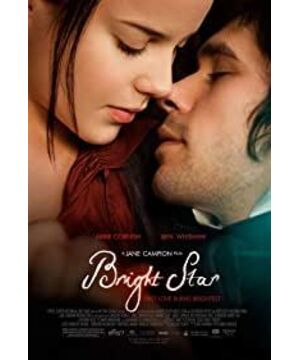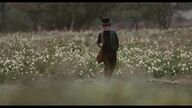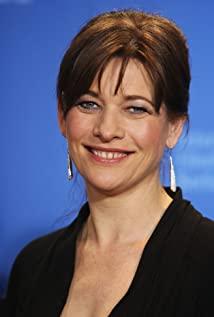I don't need to stress that Keats's brilliance is one of the three greatest poets of the British Romantic poetry. Poetry is the proof. I don't need to say much about Keats's miserable life experience. It is no exaggeration to exaggerate for a quarter of a century, and finally died in a foreign country. If we say that in the fleeting life of a meteor streaking across the night sky, what is the most unforgettable thing for the poet, would it be love? There has always been disagreement on this point.
From the historical materials that can be found, a more consistent statement is that the poet Keats loved his daughter next door Fanny (Fanny Brawne) more than Fanny loved the poet Keats. This short (three-year) love that began with Fanny's initiative, Keats fell in love, and finally died with the poet's life (perhaps earlier?) In the last life, there is a layer of suffering in addition to the pain.
From the perspective of family circumstances, Fanny clearly has the upper hand: although she lives in rented rooms with her widowed mother and younger siblings, the Fanny family will not be able to make ends meet, and they can still afford helpers, and, according to Fanny's words: even if I thread and sew a shirt and a half, and I still have money to make. In other words, what is writing poetry? Terribly poor. In this way, the poet can't help but feel short of breath when he hears it, but he has no reason to say anything. From a personality point of view, Fanny still has the upper hand: Hampstead, the poet and Fanny’s house, lived next to each other under the same roof. At that time, there was a barracks nearby. There were many strong men of the right age who were paid by the emperor. A group of single women associates (here can refer to the love affair of the five girls Lydia in Pride & Prejudice). Fanny is generous and even heroic by nature, and with her skillful skills and good makeup, she can always take care of herself without distinction and has a large number of followers. Before Keats, Fanny had never encountered a handsome, melancholy, frail and talented man. Compared with Brother Bing, the poet was a different kind to Fanny, and it was too easy to arouse curiosity. Before becoming a poet, Keats was an apprentice in a physician, and his status is equivalent to an elementary apprentice who mustered up the courage to confess to Molly but was severely reprimanded by his master in Wives & Daughters. The inferiority complex is not very serious. It can't be said that it is not serious, coupled with physical weakness (it is the root cause of the fetal belt), it can be said to be more pessimistic about the relationship between men and women. When such a pair of men and women meet, it is self-evident who is the master and who is the slave.
Indeed, Fanny, who was parked in front of the poet's window like a butterfly, did not surprise the romantic poet at first, and was regarded as a fairy. The so-called love is born over time, every day when you look up and don’t look down, what you see is either heavy makeup or fancy clothes (compared with people of the same age and the same place in the same age), I am afraid that it is a ruthless little monk who is retreating in the deep mountains, and he must also ask Master I took leave to go down the mountain to Huazhai. The poet Keats, who was wandering in the dark night of hesitation, inferiority, anger, and jealousy, had long since surrendered to Fanny. In the end, Fanny also likes poets outside of her curiosity, otherwise she would not have found a large book of predecessors' poetry collections and contemporary poems to crawl, in order to find topics that can be developed when living with poets. From the fall of the meeting to the spring of the following year, love, despite all odds, sprouted and slowly sprouted between Keats and Fanny.
It's just that love is never a matter of falling in love with a man and a woman. Keats' friends are not optimistic about Fanny, and there are good reasons: First, Fanny likes to provoke men, and I'm afraid Keats, who spends most of his time in romantic intentions, can handle it; Not only Keats' original body, but also the precious golden period of creation. The loss cannot be said to be insignificant. Over there, Fanny's mother doesn't quite agree with this seemingly unfounded love: marrying a daughter must always weigh the weight of a man's family, not to mention the wealth of the family (such as the diamond man Darcy), at least there must be The ability to support the family, the daughter will not endure hardship and poverty after marrying. But those who write poetry and those who paint are the same way. Not only can they not make money, but they are often heavily in debt. Many are unknown during their lifetimes, and few become famous after death. Thinking about it like this, Fanny's mother was really annoyed, but she couldn't help her. Except for telling her daughter that it was better to brake urgently, Fanny's mother couldn't think of any good plan for a while, so she had to turn a blind eye.
Every true love has a good time. The two young men who were not evenly matched with each other were sometimes happy and sometimes sad in the spring flowers, autumn moon, summer rain and winter snow. Finally, before the third autumn of acquaintance came, the poet's body seemed to be no longer able to withstand another severe cold. With the planning and support of his friends, the poet dragged his sick body along with his friends on the road of no return. This time the plan is to hope that the poet's body can survive the autumn and winter in the relatively warm Italy, while the enthusiasm of the Mediterranean has kept the poet in Rome forever. I wonder if the poet was still stroking the oval marble given by Fanny before he died: the round stone that was once played in the hands of Fanny, who was very good at female redness, was slowly warmed by the feverish body in the palm of the poet's palm. Woolen cloth?
A love that came to an end, a night sky with a shooting star, the starlight dimmed the moonlight for a while...
~~~~~~~~~~~~~~~~~~~~~~~~~~~ ~~~~~~ After the
story is over, let's talk about the movie:
1. Basically, if you buy a ticket to see it, you will be a little more disappointed than expected. Although I watched it for free, I am still disappointed. What is the old saying? Good ingredients may not be able to make famous dishes, the craftsmanship of the chef is very important. Writer-director Jane Campion is as feminist as ever, and in this film about Keats and Fanny's love affair, it's a star-studded show that extends Fanny's dominance to all the other characters in the play (including Keats's). ) have been reduced to supporting roles.
2. The heroine Abbie Cornish's appearance is very modern, and so are her lines. The costumes are comparable to Zhang Yu in "Love on Mount Lu". Basically, each appearance is a different costume, and the more gorgeous and unsightly costumes are the main ones. Judging from the lines, the heroine, Fanny, is not rude, very unlike the women of that era (early 19th century), but very much like the real actor who grew up in Australia's Hunter Valley.
3. The rhythm is uneven, but the speed is not the place, which is disappointing. The lines are quicker than the Victorian grace and poise, and the pacing of the film is unnervingly slow. This is the second time I have seen someone leave the scene in the cinema, the first time was watching Hou Hsiao-hsien's "Red Balloon Journey".
4, the music is relatively thunderous. There is very little music in the film itself, which always feels like a lack of romantic elements. The title part is mostly used, and the female and male voices are a bit scary.
5. I got 3 stars, which is a relatively low personal score among similar films. Samsung gave the actor Ben Whishaw (the murderer in Perfume), the photographer who captured the postcard-like scenery, and the film's subtle and harmonious color scheme (the countless blue-brown collisions are beautiful ).
6. If someone like me sees the Bluebell flowers on the poster and can't stop, let's take it easy: the scene where the Bluebell flowers appear in the film is estimated to be no more than 10 seconds, which is a bit of a fool.
7. The film will be released in Australia on December 26. Then we'll see how many people left as happy as I was, and left disappointed.
View more about Bright Star reviews











